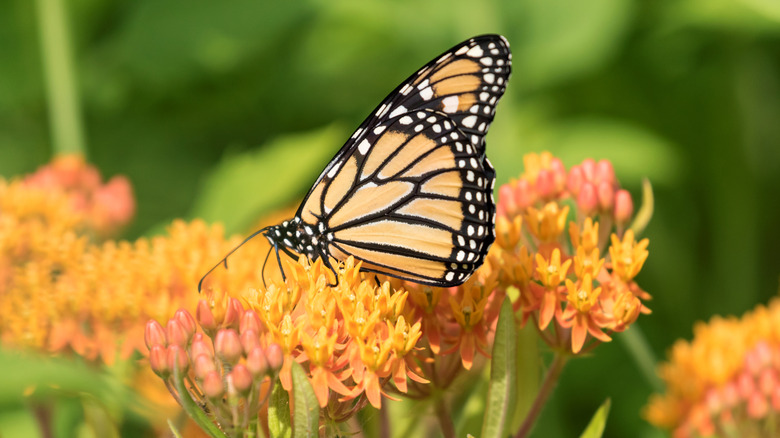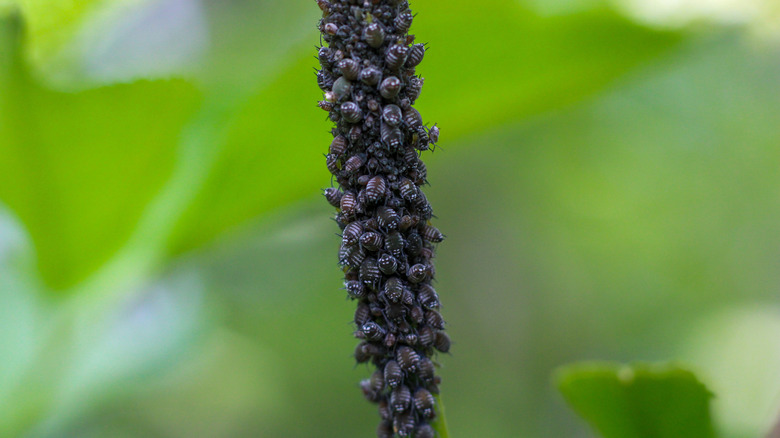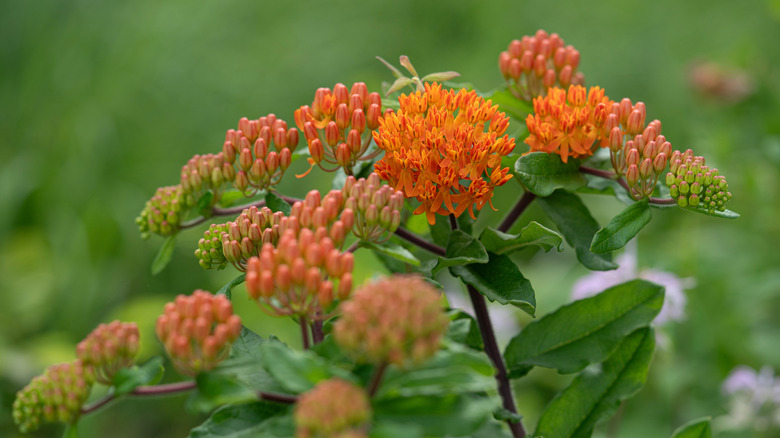Butterfly Weed Attracts Pollinators, But Comes With Some Concerns
If you've been looking to attract more pollinators to your garden, you might be considering planting butterfly weed. These plants contain beautiful bright-orange flowers that are not only visually stunning but also provide food for pollinators. Before growing your own butterfly seed, however, you should know that there are a few downsides. Aaron Gutzdorf, who is the operations manager for the Truly Nolen location in Fort Myers, Florida, revealed everything you should be aware of when it comes to this plant. He explained that butterfly weed spreads aggressively in certain environments. "If seed pods are disturbed, they can self-spread very quickly," Gutzdorf said while speaking exclusively to House Digest. They also attract aphids.
Despite these concerns, there are quite a few benefits of planting butterfly weed. You know that they attract bees and other pollinators — but did you know that they are also rather low maintenance? Gutzdorf explained that butterfly weed is "usually disease-free and can survive in poor conditions, even drought." With all of the pros and cons of butterfly weed, it's not easy to decide whether it is right for you. Luckily, Gutzdorf shared more expert knowledge so you know what to expect from the plant.
Why are aphids drawn to butterfly weed?
Since one of the many downsides of butterfly weed is its vulnerability to aphids, you might be wondering why these pests are drawn to the plant in the first place. Aaron Gutzdorf expanded on this topic while speaking exclusively to House Digest. "Aphids are attracted to the sweet sap that is within the plant," he explained. "Due to the milkweed being stressed or a new/younger plant, this will also allow increased aphid activity."
Nitrogen is another factor in aphids' interest in butterfly weed. "Reducing nitrogen content in the host plants will help reduce infestations," Gutzdorf confirmed. "Unfortunately, high infestations reduce the number of eggs laid by monarch butterflies." When aphids do infest butterfly weed successfully, they can do some real damage. Gutzdorf explained that the pests consume the plant's sweet sap and then create honey dew. This then leads to black sooty mold. "Black sooty mold is a clear visualization of active insect activity," the expert shared. "Aphids will cause leaf deformity, and due to this can cause issue for pollinators – specifically butterflies."
How to keep aphids away from butterfly weed
Although the risk of butterfly weed falling victim to aphid infestations is concerning, there are steps you can take to tackle this problem. "The best way to remove aphids is proper cultural practices," Aaron Gutzdorf revealed while speaking exclusively to House Digest. You can stay on top of this by simply watering your butterfly weed properly and ensuring the plant receives the right amount of sunlight, according to the expert.
"In some cases, horticultural oils are used, but they can negatively affect pollinators," Gutzdorf continued. "Reducing fertilizer applications will cut down on the aphid populations." As previously mentioned, factors that lead to stress on butterfly weed can also make it more susceptible to aphid damage. Keep your plant free of stress by trimming dead or infested areas and avoiding fertilizer. Gutzdorf explained that adding aphids' natural predators, such as ladybugs, is also an effective method to keep aphids off the plant.


